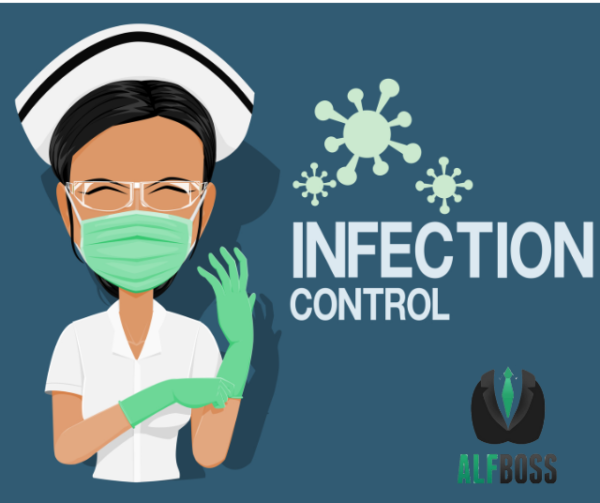
At the time of writing this article, America is facing a pandemic as we have never seen before. COVID-19 has been responsible for over 535,000 deaths in the United States alone. Many administrators and nursing leaders had never imagined Infection Control at this level would be at the forefront of our daily planning. If you adhere to the following regulation you will be sure to avoid potential issues with not just COVID-19, but many other infectious diseases:
- 131D-4.4A. Adult care home infection prevention requirements.
(a) As used in this section, “adult care home staff” means any employee of an adult care home involved in direct resident care.
(b) In order to prevent transmission of HIV, hepatitis B, hepatitis C, and other bloodborne pathogens, each adult care home shall do all of the following, beginning January 1, 2012:
(1) Implement a written infection control policy consistent with the federal Centers for Disease Control and Prevention guidelines on infection control that addresses at least all of the following:
- Proper disposal of single-use equipment used to puncture the skin, mucous membranes, and other tissues, and proper disinfection of reusable patient care items that are used for multiple residents.
- Sanitation of rooms and equipment, including cleaning procedures, agents, and schedules.
- Accessibility of infection control devices and supplies.
- Blood and bodily fluid precautions.
- Procedures to be followed when adult care home staff is exposed to blood or other body fluids of another person in a manner that poses a significant risk of transmission of HIV, hepatitis B, hepatitis C, or other bloodborne pathogens.
- Procedures to prohibit adult care home staff with exudative lesions or weeping dermatitis from engaging in direct resident care that involves the potential for contact between the resident, equipment, or devices and the lesion or dermatitis until the condition resolves.
(2) Require and monitor compliance with the facility’s infection control policy.
(3) Update the infection control policy as necessary to prevent the transmission of HIV, hepatitis B, hepatitis C, and other bloodborne pathogens.
(4) Designate one on-site staff member for each noncontiguous facility who is knowledgeable about the federal Centers for Disease Control and Prevention guidelines on infection control to direct the facility’s infection control activities and ensure that all adult care staff is trained in the facility’s infection control policy. Beginning October 1, 2013, any nonsupervisory staff member designated to direct the facility’s infection control activities shall complete the infection control course developed by the Department pursuant to G.S. 131D-4.5C. (2011-99, s. 3.)
- 131D-4.4B. Guidelines for reporting suspected communicable disease outbreaks.
The Department shall develop guidelines prescribing the manner in which an adult care home is to report a suspected communicable disease outbreak within the facility to the local health department. (2011-99, s. 3.)
Pro Tip:
- Ensure you have a dedicated infection control nurse who is responsible for understanding the CDC guidelines toward preventing infectious diseases as well as putting together a comprehensive plan for the community’s infection control efforts.